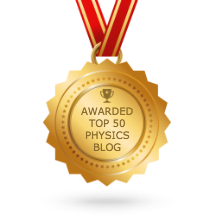 |
| Alexander Pope |
In the preface to the third edition,
Russell Hobbie set out on a mission.
For the two years before seventy three
He audited the University
Of Minnesota’s medical courses.
He found a lack of physics discourses.
An intermediate physics class would
For these students be so useful and good.
This book is the result of when he taught
Such a course that students needed a lot.
He hoped that even those physics teachers
Scared of bio would value its features.
And doctors would find it a good reference
With the physics concepts never too dense.
Because the book was used by those whose tools
From math were not vast he set down four rules:
Calculus would be used without regret,
And reviewed in detail when not seen yet.
Readers should know the vocabulary
But it’s told from the start, it’s not scary.
He did not skip steps in derivations,
And shunned any weirdo math notations.
Hobbie added someone to help him write
The Fourth Edition, and they did not fight.
They wrote a new chapter, but made sure that
The new edition did not get too fat.
They added more than one homework problem,
And a solution manual for them.
Chapter One reviews biomechanics,
Stress and strain, also fluid dynamics.
Then Two discusses the exponential
A math function that’s truly essential.
Next Three deals with temperature and heat,
Biothermodynamics it does treat.
Diffusion’s the topic of Chapter Four
A random walk, and drift, and so much more.
Chapter Five describes flow across membranes,
And osmosis from ions that it contains.
Six covers bioelectricity,
And a model by Hodgkin and Huxley.
Chapter Seven contains the EKG,
And defibrillation is really key.
Chapter Eight deals with all things magnetic,
Interesting, but not too poetic.
Nine begins with the model of Donnan,
Then Nernst-Planck, Debye-Huckel, and so on.
Chapter Ten has lots of mathematics,
With feedback and chaos and dynamics.
Eleven derives Fourier transforms.
Least squares and correlations, it brainstorms.
Next Twelve analyzes tomography,
Which allows you to image in 3D!
Chapter Thirteen considers ultrasound,
A topic that you’ll find really profound.
Next Chapter Fourteen summarizes light,
Mix red and green and blue and you get white!
Fifteen considers photons and matter:
Photoelectric and Compton Scatter.
Chapter Sixteen is about the x-ray,
Where the unit for dose is named the gray.
Seventeen is about technetium,
Nuclear medicine, and even then some.
Then Eighteen is not about anything
But magnetic resonance imaging.
Biophysics is a subject quite broad,
Of which we are always completely awed.
Our book has grown and become large enough,
To fit molecular stuff would be tough.
We would like to get any corrections,
Or even hear about your suggestions.
And last we thank our long-suffering wives,
We know that this book disrupted their lives.
 |
| The Age of Voltaire, by Will and Ariel Durant. |
The Iliad, translated by Alexander Pope (the heroic couplets start at 2:20).
https://www.youtube.com/watch?v=28RNGOCIzYI



No comments:
Post a Comment